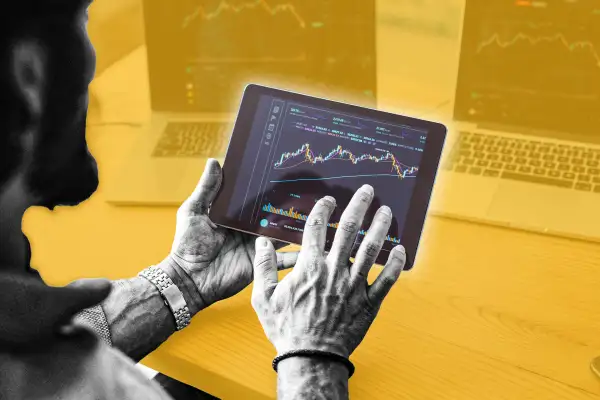How to Find Upcoming Crypto Presales
Money is not a client of any investment adviser featured on this page. The information provided on this page is for educational purposes only and is not intended as investment advice. Money does not offer advisory services.

Shortly before ethereum launched in 2015, there was an opportunity to buy its coin ether (ETH) for just 30 cents as part of what’s known as a presale. Now, the second-largest crypto by market cap is worth more than $2,530. By the time the coin reached its all-time high of nearly $4,900, it had rewarded early adopters with returns of more than 16,000 times their initial investment.
Crypto presales represent a tantalizing opportunity for investors: Fund early for less, and reap bigger rewards later when the coin rises in value. It’s a win-win scenario for buyers and developers alike. You get a discount on the newest assets, while the coin’s development team secures a larger backing for their project early on.
But that “when” is actually a big “if.” Not all presales are successful. And because they take place before a project is fully public or proven, presales can end up as failed launches, have limited liquidity after their tokens go live or even turn out to be scams.
In this guide, we’ll walk you through how to identify legitimate crypto presales, evaluate whether a project is worth backing and how you can participate in them — plus the common missteps to avoid along the way.
How to find legitimate crypto presales
The crypto space moves quickly, and presale buzz often starts in niche communities before making its way to the mainstream. Still, there’s a lot of noise to wade through.
One of the most reliable ways to find early opportunities is through platforms designed to host presales and token launches. Called crypto launchpads, popular ones like Binance Launchpad, CoinList and DAO Maker typically vet projects before listing them, which can help filter out scams or low-effort offerings.
Another way to spot presales is on social media and crypto forums. Twitter (now X), Reddit — especially in subreddits like r/CryptoMoonShots — and Telegram groups are hotbeds for early project announcements and discussions. These spaces often catch wind of new projects well before they hit major platforms.
It’s also worth checking project websites and whitepapers directly. Many startups announce their presales on their official sites and offer detailed documentation about their mission, tokenomics and development timeline. Crypto influencers and industry newsletters can be helpful sources as well, but make sure you verify any claims they make before acting on them.
How to evaluate a crypto presale project
A key element of any trustworthy crypto presale is transparency. Projects with anonymous or unverifiable teams are higher risk investments since there’s very little in the way of accountability if foul play is involved. Find out who's behind the project and whether they have public profiles with relevant experience in blockchain, finance or software development.
The team behind the project should also be able to provide a detailed whitepaper and roadmap that explains the crypto’s purpose, technical structure and goals. Overly generic or vague documents are red flags that signal a lack of seriousness or originality at best and a potential scam at worst.
Security is another critical factor. Reputable projects often undergo a smart contract audit by third-party firms such as CertiK or Hacken that have a history of evaluating crypto and blockchain projects. These audits help identify vulnerabilities before the project’s code goes live.
How to buy into a crypto presale
Before you can buy into a crypto presale, you’ll need a Web3 wallet. These are digital wallets — such as MetaMask, Trust Wallet or Best Wallet — that, on top of storing the private keys to your crypto, allow you to interact with applications and services built on the decentralized internet.
Best Wallet, for example, offers users an integrated launchpad while also featuring full anonymity and no KYC while supporting thousands of cryptos on popular blockchains. Presently, the platform is featuring presales of the following cryptos:
- Hyper Bitcoin (HYPER)
- Maxi Doge (MAXI)
- Snorter (SNORT)
Once you have identified a presale that checks the right boxes, you’ll need to ensure that your wallet supports its blockchain, be it ethereum, BNB Chain, solana or another network. Then, you’ll need to acquire the appropriate cryptocurrency. Most presales accept payments in widely used coins like ETH, BNB or USDT, but others allow you to use credit cards, debit cards or platforms like PayPal.
The next step after funding your wallet is to visit the presale’s official website or launchpad and connect your wallet through a secure Web3 interface. There, you’ll be able to execute the transaction and confirm it in your wallet. In many cases, you’ll receive a placeholder that acts as a receipt — the actual tokens are usually distributed after the presale concludes.
You should also stay connected with the project’s community after investing in it. Updates on launch dates, exchange listings and token distributions often happen in real time through Discord or Telegram channels. Staying in the loop can help you make informed decisions post-sale.
5 common crypto presale mistakes to avoid
While crypto presales can be rewarding, they’re also rife with potential pitfalls. Some common mistakes to watch out for include:
1. Falling for scams
Fake websites and impersonator accounts are rampant in the crypto space, which make scams one of the biggest dangers of presales. Always verify official links through trusted sources or aggregator sites like CoinGecko or CoinMarketCap.
2. Ignoring token vesting
A project’s vesting schedule is the rate at which a token is gradually released to investors, team members or other stakeholders. If your tokens are locked for months or years while others can sell theirs freely, your investment may lose value before you even have the chance to trade it — a potential sign of a pump-and-dump scheme.
3. Overexposing your portfolio
Crypto presales are inherently speculative, high-risk investments. Even those with a reputable team and backing can’t promise a successful launch (or post-launch). It’s prudent to limit your exposure and diversify your holdings to mitigate potential losses. Remember, don’t invest more than you can afford to lose.
4. Missing gas fees and transaction limits
Some chains (especially ethereum) have high gas fees, meaning the transaction fees paid by users to process and validate network operations. Failing to account for these can cause failed or delayed transactions — a frustrating experience that can impact your buying opportunity.
5. Using unsecured devices
Make sure you're only interacting with presale smart contracts using secure, up-to-date devices. Avoid connecting your crypto wallet to unknown dApps or clicking on any suspicious links, even when they appear in otherwise legitimate forums or group chats.





